
What does "cold press" mean when buying a juicer?What does "cold press" mean when buying a juicer?
Cold Press juicers, also known as masticating juicers, are known for slowly squeezing fruits. By doing this, cold press juicers can extract more nutrients from a fruit compared to a centrifugal juicer.
What are the different types of juicers?
There are different types of juicers including centrifugal juicers, masticating juicers, triturating juicers, citrus juicers, and blender users. Centrifugal juicers are faster and have a speed of 3,000 to 10,000 RPM, while a masticating juicer is much slower with a speed of 40 to 100 RPM.
What to look for when purchasing a juicer?
When purchasing a juicer, consider the different types of juicers available, its noise levels, speeds, size, and any additional features or accessories it may include. You should also consider its ability to juice different types of fruits, greens, and herbs.
What is the benefit of a centrifugal juicer?What is the benefit of a centrifugal juicer?
Centrifugal juicers are affordable, easy to use, include optional pulp extractors, and operate at higher speeds making it faster than other juicers. Additionally, centrifugal juicers are ideal for harder fruits and vegetables.
What are the benefits of a juicer?What are the benefits of a juicer?
Juicers help you increase the consumption of fruits and vegetables, make it easier to absorb nutrients, and help increase the intake of vitamins.
What is a slow juicer?
There are two basic juicer types on the market: centrifugal and masticating (or slow). The larger, noisier, and more affordable of the two, centrifugal juicers use a high-speed blade and tend to yield less juice and more foam than their slow-juicing counterparts.
Masticating juicers steadily turn an auger that pulverizes fruits and veggies, leaving more nutrients and enzymes intact and producing smoother, silkier, and better-tasting juice overall. For these reasons, our guide focuses solely on slow juicers.
Can drinking juice help you lose weight?
While some people claim green juice can help you lose weight and clear the body of "toxins," these ideas are not medically supported.
"Even if you're making it yourself, juice is still more processed than a whole fruit or veggie, and studies consistently show that it's more beneficial to eat foods in their more natural state," Samantha Cassetty, MS, RD, author of "Sugar Shock" told us. "Our bodies don't register the calories we drink in the same way they register calories from food, so you don't get the same level of fullness from juice as you would from eating an apple or veggie."
However, Cassetty said fresh juice is still an excellent way to add more nutrients to your diet, and based on our testing, the juicers above all perform at the top level.
What is the difference between a juicer and a juice extractor?
A juice extractor is another name for a centrifugal juicer, which uses blades and rotation to separate juice from skins, seeds, and pulp, as opposed to a masticating juicer, or slow juicer, which pulverizes in order to extract.
Which is healthier, juicing or smoothies?
Neither juice nor smoothies are necessarily "healthy," depending on the ingredients used and the amount consumed.
It is always more beneficial to consume fruits and vegetables in their whole state, as opposed to a liquid concentrated with their sugars. A large serving of juice or smoothie is likely to contain exceptionally high levels of sugar.
What vegetables should not be juiced?
Avocado: You simply won't get much juice out of an avocado, and it'll make a mess. They fare better in blenders for smoothies.
Coconut: Coconut flesh does not make juice, water, or milk as it's too dry. To reduce coconut, the blender is a better option.
Cruciferous vegetables: Broccoli, cauliflower, and others might have high levels of vitamin C, but they're difficult to digest. The amount you'd consume by making juice would likely leave you with indigestion pains.
Whole stone fruits and pome fruits: The pits of stone fruits (peaches, cherries, plums) and, to a lesser degree, the seeds of pome fruits (apples, pears) will likely destroy your juicer.
How to clean a juicer
How you'll clean a juicer depends on the design of the juicer. Generally, you don't want to put juicer parts in your dishwasher as the plastic isn't built for it. Warm soapy water, a toothbrush-like implement, and a sponge will do the trick, but be sure to let everything properly dry before putting it away as there are working metal parts that are likely to rust.
What to look for in a juicer
The best juicers are unequivocally slow, or masticating juicers. Their slow-churning augers make for a better yield and keep nutrients intact better than the high-speed, bladed juicers that obliterate and oxidize foods.
Secondarily, consider what you want your juicer to do. Are you exclusively making juice? A unitasker (like the Omega and Hurom models above) is ideal in that case.
You'll also want to decide how much you value a good warranty. SiFENE's 2-year warranty on all parts and 4-year on motor is hard to beat.
Lastly, consider size. Depending on your views and your available space, a compact machine may supersede a better warranty, especially if you are looking for something you can easily move between the cabinet and the countertop.

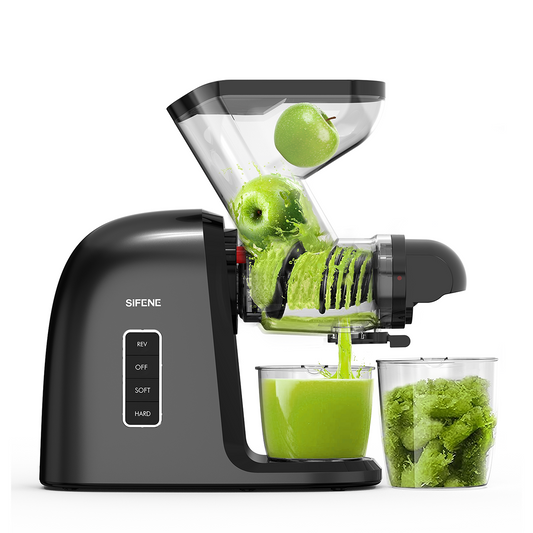
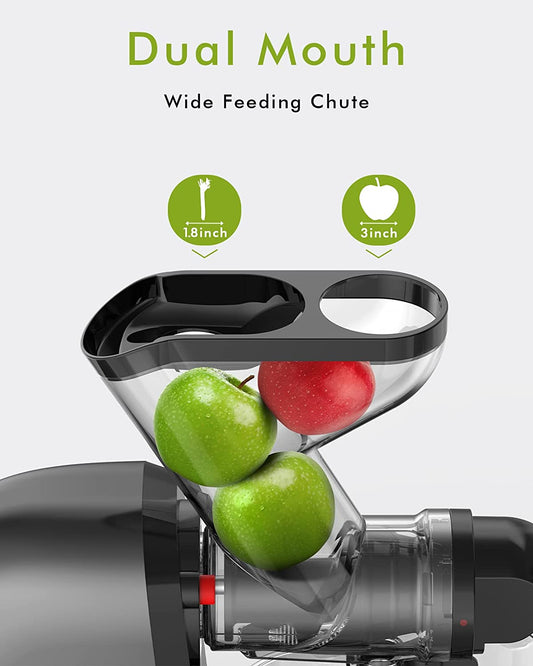
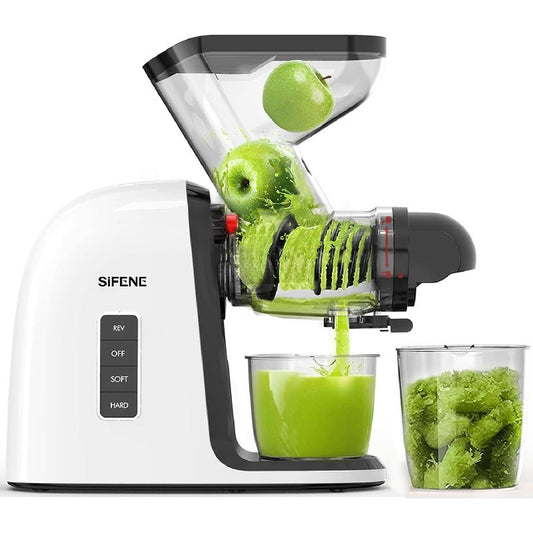
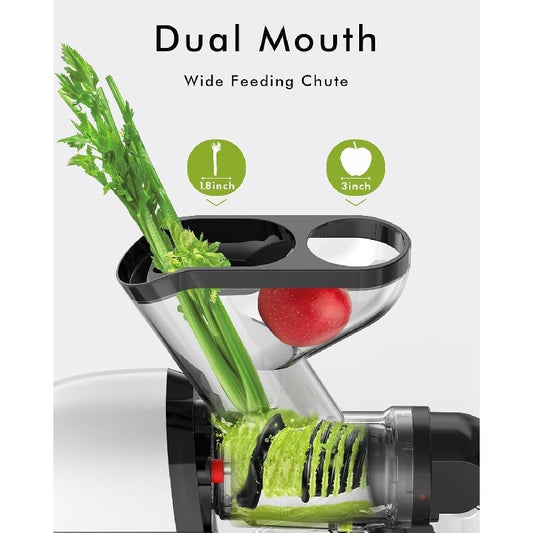
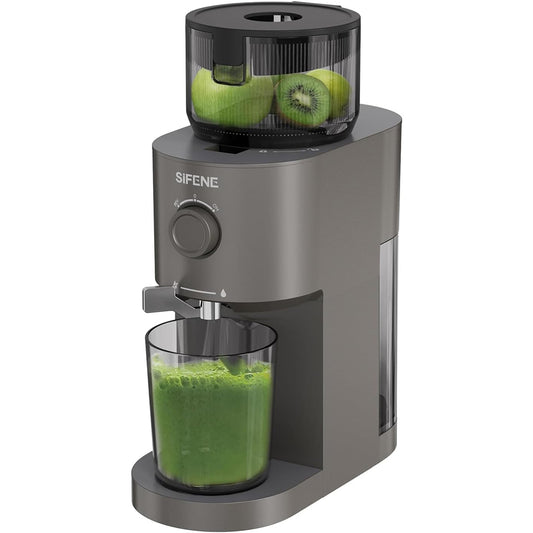
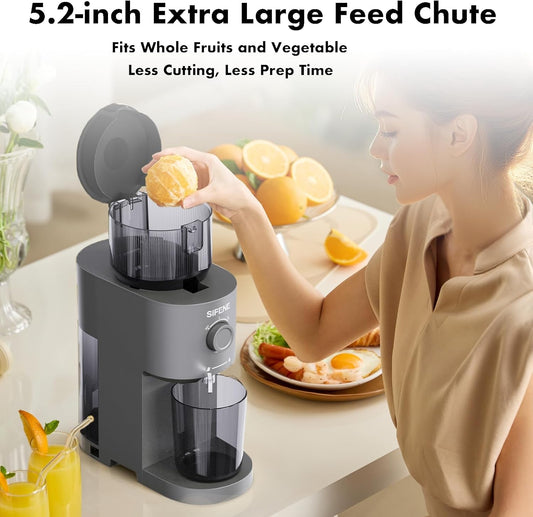
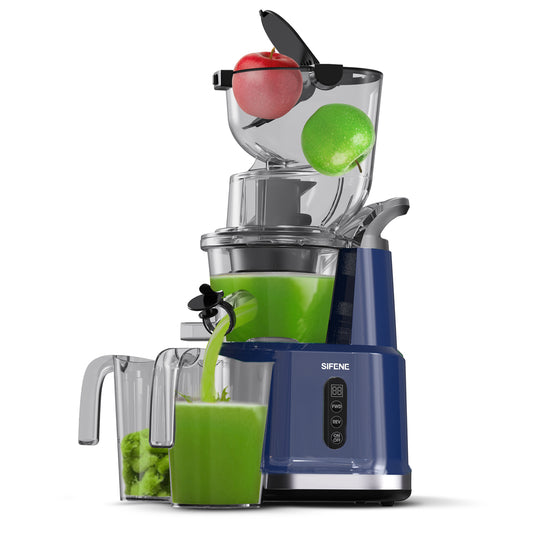
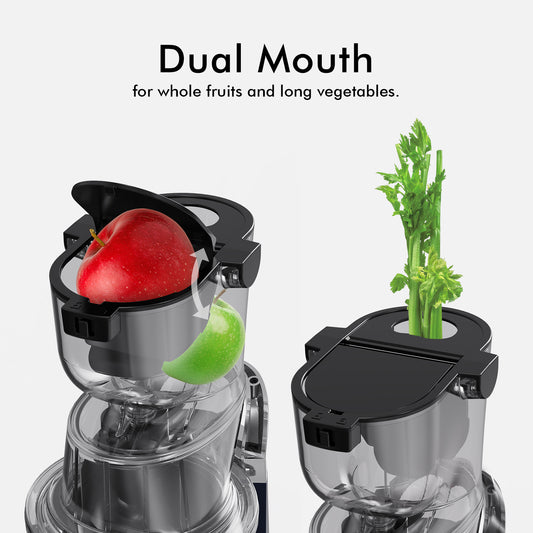
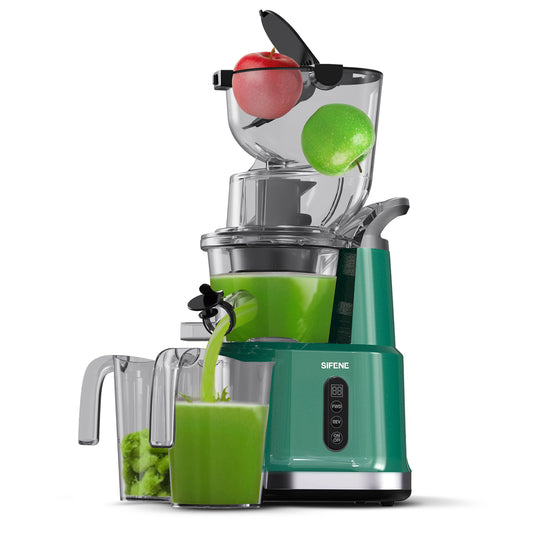
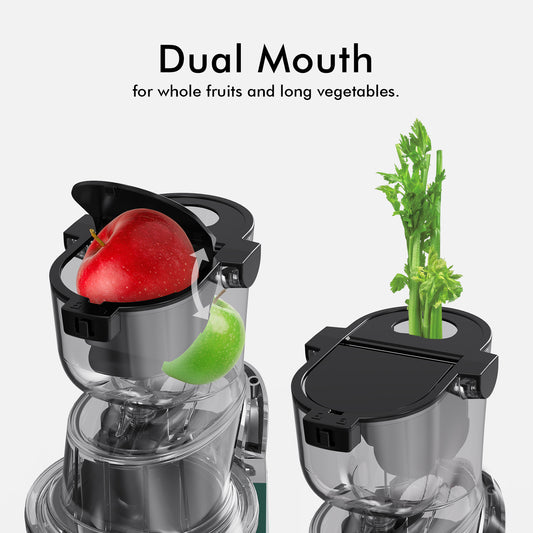
3 comments
I’m needing to replace my auger for the JS3101 Dual Mouth Juicer .. How do I order the part?
I need to know about part of the juicer auger and filter
I need to knowabout part of the juicer